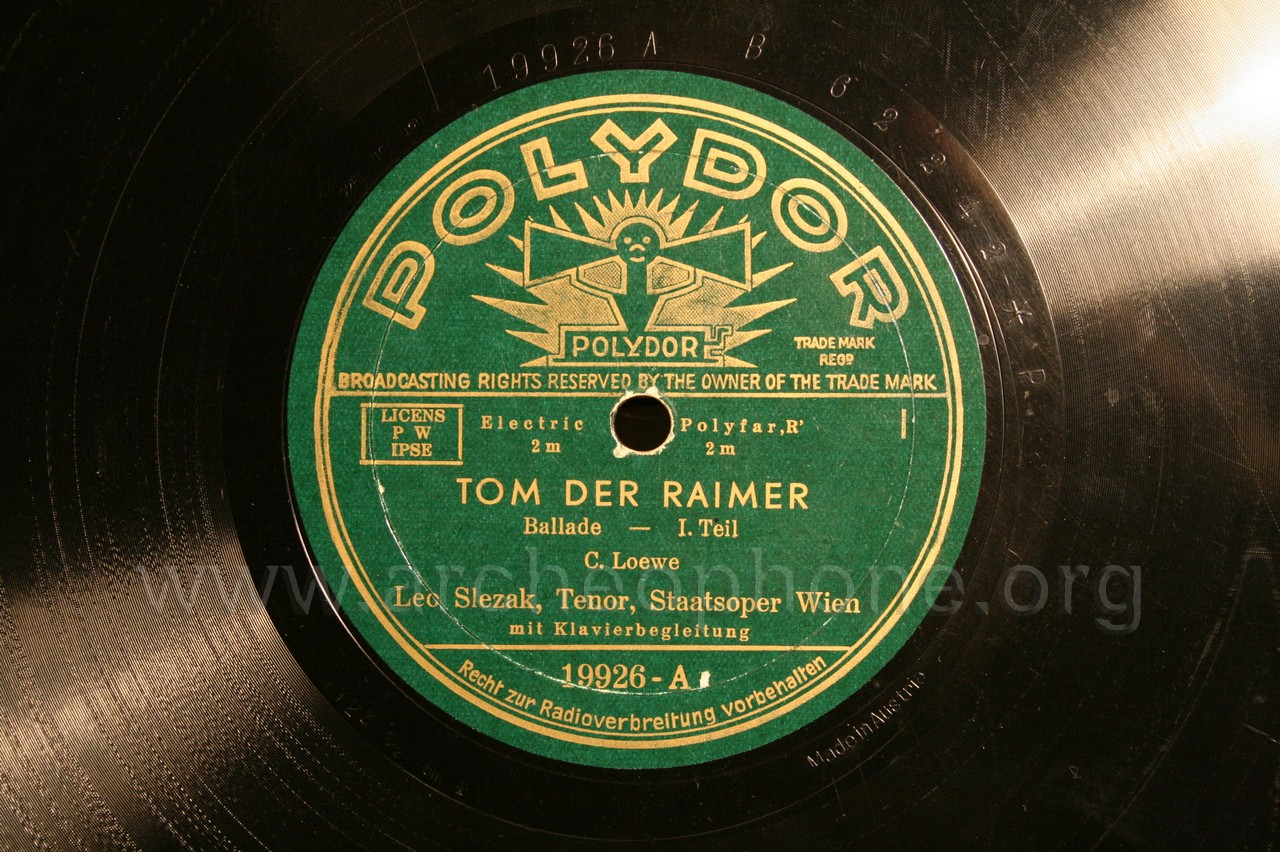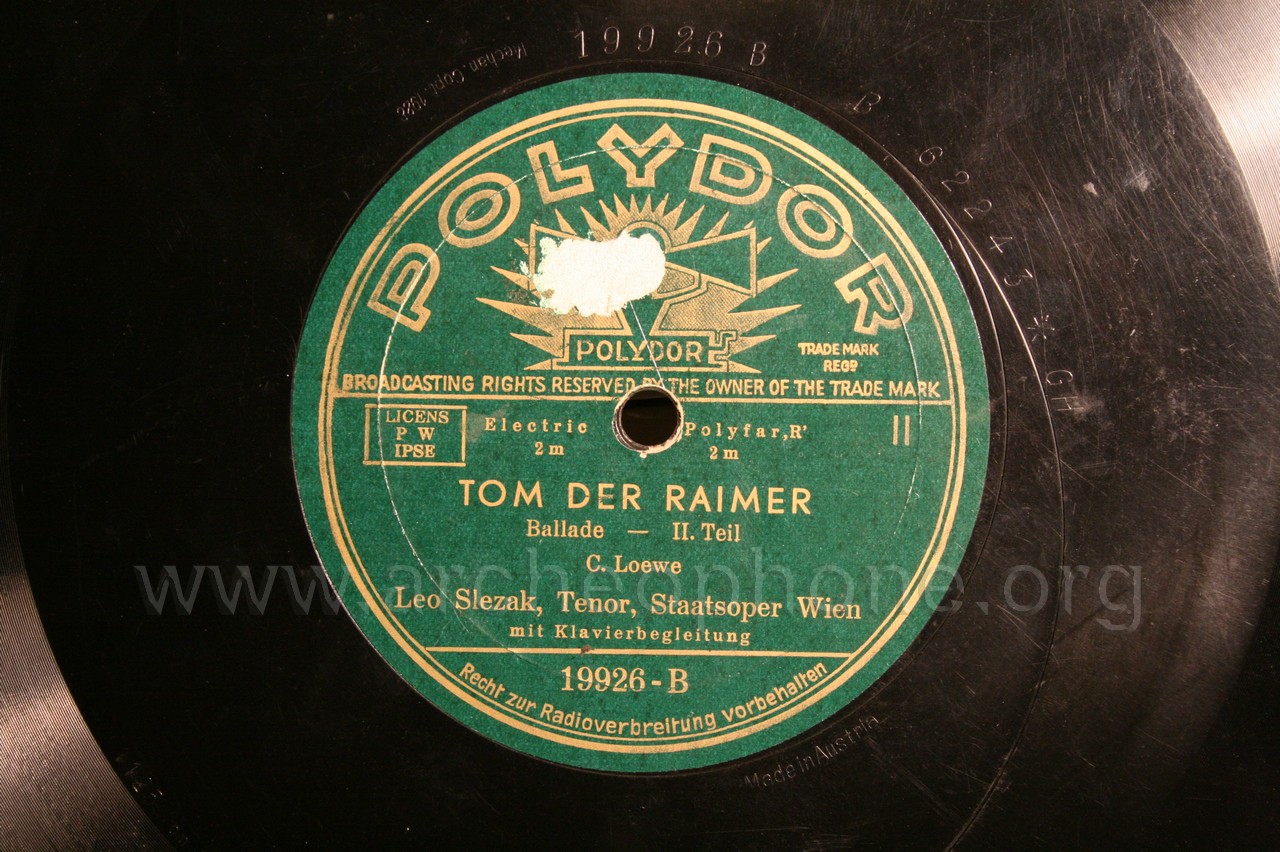 |  |
Poème allemand de Theodor Fontane (1819-1898)
D'après un texte en anglais "Thomas the Rhymer", poème ou chant folklorique écossais (14e siècle).
Musique de Johann Karl Gottfried Loewe (1796-1869)
"Thomas der Reimer"
Ballade nach dem Altschottischen von Th. Fontane, op. 135a.
Der Reimer Thomas lag am Bach,
Am Kieselbach bei Huntly Schloß.
Da sah er eine blonde Frau,
Die saß auf einem weißen Roß.
Sie saß auf einem weißen Roß,
Die Mähne war geflochten fein,
Und hell an jeder Flechte hing
Ein silberblankes Glöckelein.
Und Tom der Reimer zog den Hut
Und fiel auf's Knie, er grüßt und spricht:
,,Du bist die Himmelskönigin!
Du bist von dieser Erde nicht!``
Die blonde Frau hät an ihr Roß:
,,Ich will dir sagen, wer ich bin;
Ich bin die Himmelsjungfrau nicht,
Ich bin die Elfenkönigin!
,,Nimm deine Harf und spiel und sing
Und laß dein bestes Lied erschalln!
Doch wenn du meine Lippe küßt,
Bist du mir sieben Jahr verfalln!``
,,Wohl! sieben Jahr, o Königin,
Zu dienen dir, es schreckt mich kaum!``
Er küßte sie, sie küßte ihn,
Ein Vogel sang im Eschenbaum.
,,Nun bist du mein, nun zieh mit mir,
Nun bist du mein auf sieben Jahr.``
Sie ritten durch den grünen Wald,
Wie glücklich da der Reimer war!
Sie ritten durch den grünen Wald
Bei Vogelsang und Sonnenschein,
Und wenn sie leicht am Zügel zog,
So klangen hell die Glöckelein.
---
Ici la traduction en français :
http://www.recmusic.org/lieder/get_text.html?TextId=70015
Ici la traduction en anglais :
http://www.recmusic.org/lieder/get_text.html?TextId=18198
----
Ici le texte original :
14th Century Scottish ballad, folk poetry or song tradition
"Thomas The Rhymer", an old Scottish ballad
True Thomas lay on Huntlie bank;
A ferly he spied wi' his ee;
And there he saw a lady bright
Come riding down by the Eildon Tree.
Her shirt was o' the grass-green silk,
Her mantle o' the velvet fine;
At ilka tett of her horse's mane
Hung fifty sil'er bells and nine.
True Thomas he pulled off his cap
And louted low down to his knee:
All hail, thou mighty Queen of Heaven!
For thy peer on earth I never did see.
O no, O no, Thomas, she said,
That name does not belang to me;
I am but the Queen of fair Elfland,
That am hither come to visit thee.
Harp and carp, Thomas, she said,
Harp and carp along wi' me;
And if ye dare to kiss my lips,
Sure of your body I will be.
Betide me weal, betide me woe,
That weird shall never daunten me.
Sine he has kissed her rosy lips,
All underneath the Eildon Tree.
Now ye maun go wi' me, she said,
True Thomas, ye maun go wi' me;
And ye maun serve me seven years
Through weal or woe, as may chance to be.
She mounted on her milk-white steed;
She's ta'en True Thomas up behind;
And ay whene'er her bridle rung,
The steel flew swifter than the wind.
O they rade on and further on;
The steed gaed swifter than the wind,
Until they reached a desert wide,
And living land was left behind.
Light down, light down now, True Thomas,
And lean your head upon my knee.
Abide and rest a little space,
And I will show you ferlies three.
O see ye not yon narrow road,
So thick beset with thorns and briars?
That is the path of righteousness,
Though after it but few inquires.
And see ye not that braid, braid road,
That lies across that lily leven?
That is the path of wickedness,
Though some call it the road to heaven.
And see not ye that bonny road
That winds about the ferny brae?
That is the road to fair Elfland,
Where thou and I this night maun gae.
But Thomas, ye maun hold your tongue,
Whatever ye may hear or see;
For if you speak word in Elfenland,
Ye'll ne'er get back to your ain country.
O they rade on and farther on,
And they waded through rivers aboon the knee,
And they saw neither sun nor moon,
But they heard the roaring of the sea.
It was mirk, mirk night, and there was nae stern-light,
And they waded through red blude to the knee,
For a' the blude that's shed on earth
Rins through the springs o' that country.
Sine they came onto a garden green,
And she pulled an apple frae a tree.
Take this for thy wages, True Thomas,
It will give thee the tongue that never can lee.
My tongue is mine ain, True Thomas said;
A gudely gift ye wad gi'e to me!
I neither dought to buy nor sell
A fair or tryst where I may be.
I dought neither speak to prince or peer,
Nor ask of grace frae fair lady.
Now hold thy peace, the lady said,
For as I say, so must it be.
He has gotten a coat of the even cloth,
And a pair of shoes of velvet green;
And till seven years were gane and past,
True Thomas on earth was never seen.
Based on the 13th century legend of Thomas Rymer of Erceldoun who was said to have visited the land of Faery and returned with the gift of prophecy and tongue that could not lie.
Many of Thomas of Ercildoune's (True Thomas's) predictions are in circulation, though only a few are precisely dated or can be tied to specific events.
Perhaps the most famous prophecy dates from 1286, the year Alexander III of Scotland died. The day before Alexander's death, he had forecast that "before the next day at noon, such a tempest shall blow as Scotland has not felt for many years." When the next day proved clear, Thomas was taunted, but his forecast proved true - Scotland would not again see peace until after the battle of Bannockburn in 1314.